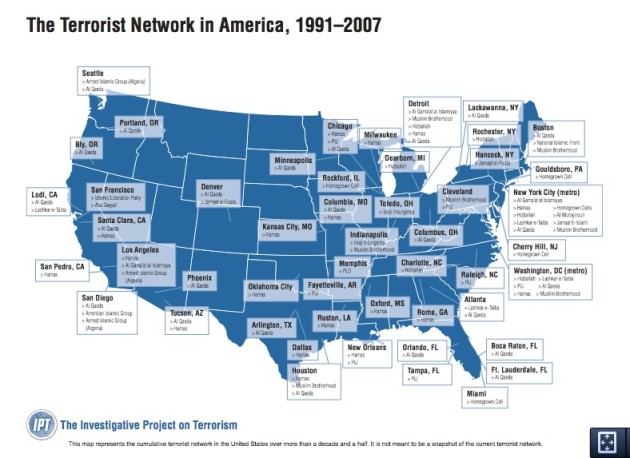
Northern Mozambique Insurgency

Mozambique, South-East Africa
Since its first attack in 2017, the insurgency Ahlu Sunna Wa Jama (ASWJ), has greatly destabilized northern Mozambique, especially Cabo Delgado Province. While ASWJ initially targeted security forces, today the insurgency frequently targets civilians, burns down homes, and destroys crops. The group held Mocimboa da Praia from March 2020 to April 2021 and Palma in March and April 2021. While ASWJ aligned with the Islamic State (IS) in 2019, the extent of their coordination is unclear. When ASWJ captured Mocimboa da Praia in August 2020, IS published an inaccurate timeline of events, appearing largely dependent on think-tanks for information. Due to ASWJ’s secrecy and the government’s suppression of information, details about the group’s origins, funding and specific ideology are uncertain.
Analysts generally view the insurgency as rooted in local grievances, rather than the product of external forces. Local Islamic clerics, interviewed by the Institute for Security Studies (ISS), claim the first signs of extremism started around 2014. Local youths, expelled from traditional mosques, started their own mosque with “strange beliefs and practices.” ASWJ was reportedly influenced by the ideas of Aboud Rogo Mohammed, an extremist Kenyan cleric.
ASWJ’s exact ideological beliefs still remain unclear, as ASWJ has produced little in the way of propaganda. Interestingly, Assaye Risk’s 2018 report indicates that the insurgents are more concerned with criminal activity than religious ideology. Supporting this, the Jamestown Foundation found the insurgents are at least partially funded through illegal ruby and timber trafficking. Cabo Delgado is the poorest province in Mozambique and, in recent years, has suffered from multiple crises, including economic stagnancy, unseasonable and severe cyclones, and cholera and COVID-19 outbreaks. The insurgency often targets young Mwani men with little economic prospects.
Additionally, Cabo Delgado is home to three of the largest liquid natural gas (LNG) projects in Africa. The majority of jobs generated by these projects go to men from Mozambique’s capital, Maputo, sidelining the Mwani, whose cultural identity and livelihoods are strongly tied to the coastal region. Since independence in 1974, the Mwani have lost substantial economic power to the Maconde (President Nyusi’s ethnic group). Divisive colonial policies favoured the Mwani, and during the war for independence, many Mwani fought with Portugal. The war, which was primarily fought in Cabo Delgado, is still highly significant to tensions today. Notably, ASWJ sometimes refers to itself as Swahili Sunna, which experts view as an allusion to the Mwani’s history in the region.
Despite the complex, interrelated challenges facing Cabo Delgado, the Nyusi government has largely focused on force, often to the detriment of human rights. Watchdog groups, such as Amnesty International, have released alarming allegations about government forces’ abuse of human rights, including torture and extrajudicial killings. Abuse allegations often go uninvestigated, and perpetrators have little reason to believe they will be held accountable.
Further, the government has worked to limit information about the conflict. During a press conference in February 2019, Governor Julio Parruque of Cabo Delgado announced that he would “no longer tolerate” journalists covering topics such as insurgent attacks, corruption, and drug trafficking. Journalists have been denied access to Cabo Delgado. Those covering the conflict have often been arbitrarily arrested. Some, like investigative journalist Ibraimo Mbaruco, have “gone missing” while seemingly in police custody. Tom Bowker, British co-founder of Zitamar News, was ordered to leave Mozambique in January 2021, the first expulsion of a foreign journalist in over 30 years.
Until recently, the government denied the insurgency’s existence, arguably enabling it to grow. President Nyusi now acknowledges ASWJ’s existence, but he solely blames “external elites” for the conflict, dismissing local grievances. However, to effectively combat ASWJ, the government must address the complex humanitarian issues facing Cabo Delgado.

“The crisis is a complex security, human rights, humanitarian and development emergency, underscoring the imperative of continuing to provide life-saving assistance while collectively supporting Government-led long-term resilience building.”United Nations Regional Directors for East and Southern Africa
Key Facts
People Killed – 3,300
Where: Cabo Delgado, Northern Mozambique
Internally Displaced Persons (IDPs): The total number of IDPs in Cabo Delgada, Niassa, and Nampula Provinces is around 732,000. Between April 2020 and April 2021, the number of the IDPs in the three provinces more than quadrupled.
People in need of Humanitarian Aid: 1.3 million in the three provinces, about 12% of the total regional population.
Population Below the Poverty Line: 55% nationwide (IGC 2019), 50% in Cabo Delgado (UNDP 2015).
Key Economic Sectors: Agriculture, Mining, Fishing, Oil and Natural Gas
- 88 percent of Cabo Delgado residents work in agriculture, fishing, or forestry (UNDP 2015)
- Extractive industries (i.e. mining, oil and natural gas) are fast-growing, but generate few jobs (often with hazardous working conditions.
Literacy rate: 47 percent nationwide (World Bank 2018), 67 percent in Cabo Delgado (USAID 2020)
Environmental issues: Mozambique is extremely vulnerable to climate change. The country regularly faces increasingly severe droughts, cyclones, and floods. As many as 25 percent of the population faces a high mortality risk from environmental disasters (UNDP).
The Situation
Improving
Counter-insurgency and aid efforts in Mozambique are underway: the World Bank pledged $100 million to support Cabo Delgado’s reconstruction plan, the EU sent 1,000 soldiers to train against the Insurgency, and the SADC announced they would be extending their military mission in the country. Aid has reached Palma in Cabo Delgado after it has not been able to come through for 6 months. Rwandan president Paul Kagame called for TotalEnergies to resume their multi-billion dollar Mozambique LNG project. Despite these improvements, there are reports of humanitarian workers in Mozambican refugee camps abusing women for aid and Al-Shabaab recruiting child soldiers in Cabo Delgado. Six months after Rwandan troops arrived in Mozambique, the Rwanda Defence Force (RDF) and Mozambique Armed Defence Forces (FADM) have agreed to establish joint security teams to bring stability to Cabo Delgado.
Northern Mozambique Insurgency: A Timeline Of Atrocities
Section 1400: Terrorism Links: Groups & Individuals
Northern Mozambique Insurgency
10/2024
See COPYRIGHT information below.



